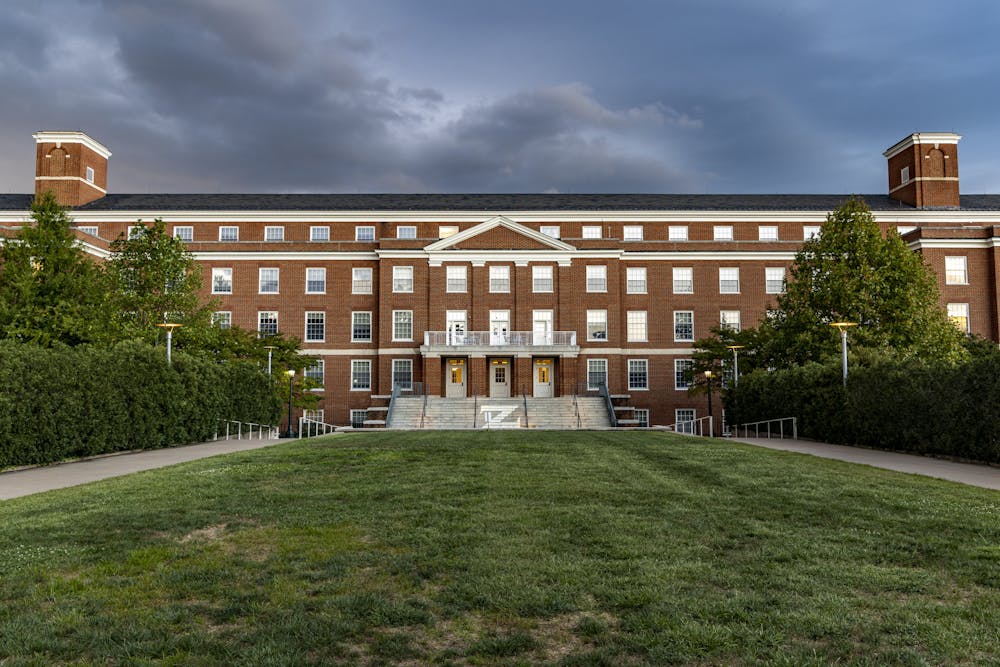The University, like all institutions of higher education, is flawed. It can be remarkably short-sighted about lived student experiences. But we, as students, also need to acknowledge the good that does exist in this institution. Notably, the University has shown an admirable commitment to the development and maintenance of its foreign language department. This commitment is especially important and noteworthy in an educational climate that is no longer prioritizing language education and the cultural awareness that is produced therein. The University, as a leader in the field of higher education and as a model for other institutions, must sustain this commitment.
The numbers do not lie. According to U.S. News and World Report Rankings, the University ranks fifth in the nation among all public universities and twenty-fourth among all universities. These statistics are a testament to the University’s academic strength and rigor. Even more impressively, however, the University’s Foreign Language and Linguistics department is ranked sixth nationally among all institutions of higher education. This achievement suggests a particular investment in the language department, one that surpasses comparable colleges. It is clear that we attend a University that is not just highly prestigious but also punching far above its weight in relation to other foreign language departments.
While these statistics deal specifically with the formal academic department, the University’s commitment to foreign languages extends far beyond the classroom to encompass cultural and community activities. This perfectly embodies the imperative for holistic language learning and acquisition. The University has countless clubs dedicated to the pursuit of languages in tandem with cultural awareness, including the Arab Student Organization and the French and Francophone Club. Language clubs are student-run but bear witness to the thriving polylinguistic scene at the University and are important extensions of more formal learning opportunities.
The University is also home to an extensive series of language dorms — la Maison Française, Casa Bolívar and Shea House. These dorms include opportunities for immersion in French, Spanish, Arabic, ASL, Chinese, German, Hebrew, Hindi and Urdu, Italian, Japanese, Korean, Persian and Russian. Here, students are able to immerse themselves in their chosen language while also experiencing cultural activities often facilitated by native-speaking international students. Community-based activities underline culture and daily communication, and are paramount in language learning. The University has supported this reality and helped to facilitate genuine language learning in these language houses.
The University’s commitment to its language department and multifaceted approach to language learning is highly unique and commendable in this day and age. Between 2013 and 2016, over 650 individual language programs were forced to close, with French and German taking the hardest hits. Most recently, West Virginia University has proposed eliminating its entire foreign language department, leaving students to rely entirely on online classes. Done under the guise of fiscal responsibility, many faculty members see this as a “blood bath” which will completely undermine the holistic liberal arts model which WVU purports to offer.
Decreased enrollment in languages has been used to justify many of these highly concerning actions. It is true that language enrollment has been in decline for many years — between 2016 and 2020 there was a 15 percent decrease in language enrollment at four-year universities. However, the more likely causes of this decrease are an increased emphasis on STEM disciplines and reversals of foreign language general education requirements. Recently, Amherst College, John Hopkins University and George Washington University have all eliminated general education language requirements, reflecting the notion that foreign languages are not necessary in our current world. In eliminating foreign language requirements, administrators communicate to students what they should value — STEM — or on the flip side what they should not value — languages. Universities are themselves the cause of the decreased enrollment, which they then use to justify closing language programs and departments.
We live in an increasingly globalized world — the power of multilingualism is difficult to overstate. The ability to not only communicate with diverse peoples across the globe but to also gain an intimate understanding of their culture and mode of interaction with the world is paramount to the project of peacebuilding. Universities are the place where young minds are inculcated with the knowledge and tools necessary for changing the world. Language is one of the most powerful of these tools, and to deprive students of it is to fundamentally misunderstand the needs of our present moment.
The University’s commitment to languages should be thoroughly applauded, especially given the current milieu in which many institutions are divesting from foreign languages. Not only is the Foreign Language department extremely prestigious, the University has provided the tools for a truly holistic form of language learning that is just as much about understanding diverse cultures as it is about conjugating verbs. Going forward, the University must maintain its commendable commitment to languages — which serves as a commitment to linguistic diversity and global perspectives.
Naima Sawaya is a Senior Associate opinion editor who writes about Academics for The Cavalier Daily. She can be reached at opinion@cavalierdaily.com.







